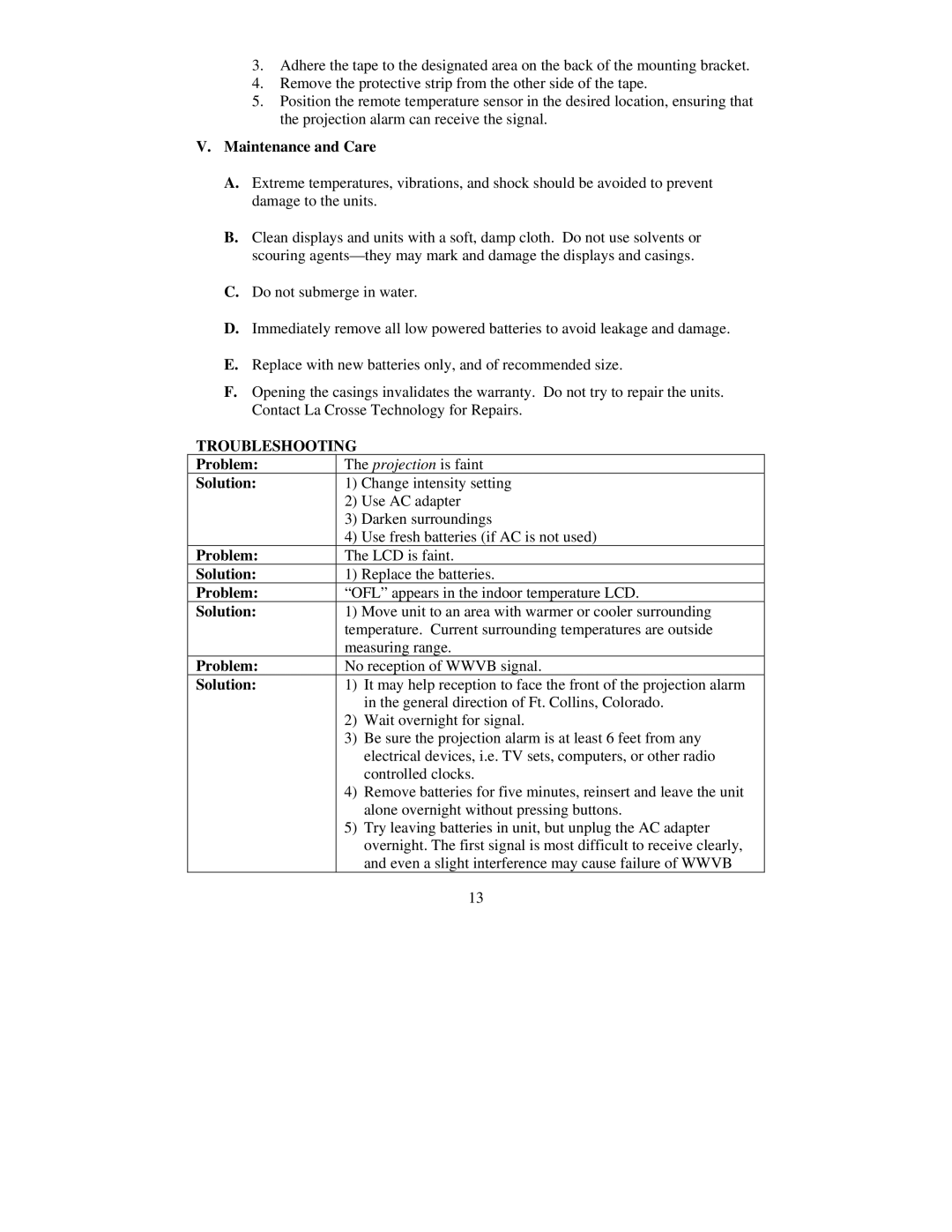3.Adhere the tape to the designated area on the back of the mounting bracket.
4.Remove the protective strip from the other side of the tape.
5.Position the remote temperature sensor in the desired location, ensuring that the projection alarm can receive the signal.
V.Maintenance and Care
A.Extreme temperatures, vibrations, and shock should be avoided to prevent damage to the units.
B.Clean displays and units with a soft, damp cloth. Do not use solvents or scouring
C.Do not submerge in water.
D.Immediately remove all low powered batteries to avoid leakage and damage.
E.Replace with new batteries only, and of recommended size.
F.Opening the casings invalidates the warranty. Do not try to repair the units. Contact La Crosse Technology for Repairs.
TROUBLESHOOTING
Problem: | The projection is faint | |
Solution: | 1) | Change intensity setting |
| 2) | Use AC adapter |
| 3) | Darken surroundings |
| 4) | Use fresh batteries (if AC is not used) |
Problem: | The LCD is faint. | |
Solution: | 1) | Replace the batteries. |
Problem: | “OFL” appears in the indoor temperature LCD. | |
Solution: | 1) | Move unit to an area with warmer or cooler surrounding |
| temperature. Current surrounding temperatures are outside | |
| measuring range. | |
Problem: | No reception of WWVB signal. | |
Solution: | 1) | It may help reception to face the front of the projection alarm |
|
| in the general direction of Ft. Collins, Colorado. |
| 2) | Wait overnight for signal. |
| 3) | Be sure the projection alarm is at least 6 feet from any |
|
| electrical devices, i.e. TV sets, computers, or other radio |
|
| controlled clocks. |
| 4) | Remove batteries for five minutes, reinsert and leave the unit |
|
| alone overnight without pressing buttons. |
| 5) | Try leaving batteries in unit, but unplug the AC adapter |
|
| overnight. The first signal is most difficult to receive clearly, |
|
| and even a slight interference may cause failure of WWVB |
|
| 13 |
